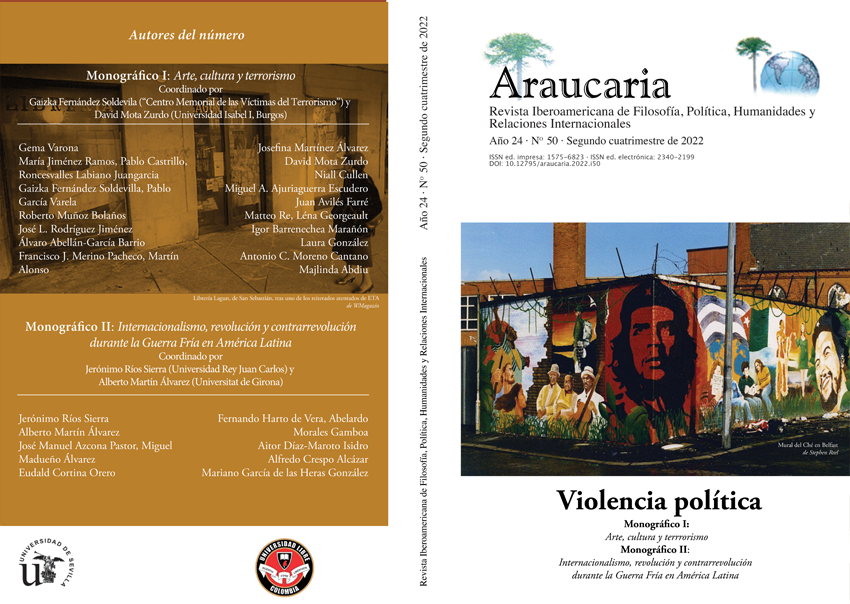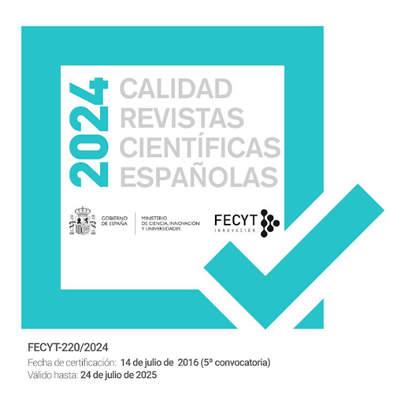De la invisibilidad a la reparación: el largo camino de las mujeres víctimas del terrorismo y su construcción en el cine.
DOI:
https://doi.org/10.12795/araucaria.2022.i50.08Keywords:
Victims, Terrorism, Cinematography, Western Europe, Political Violence and TerrorismAbstract
Since 2001, filmmakers have reflected in their works the consequences of terrorism on those women who, directly or indirectly, have been victims of political violence. This article analyzes the cinematographic treatment given to these victims in four countries - Ireland, Germany, Italy and Spain - after the terrorist groups laid down their arms. The objective is to know the differences and similarities of the stereotypes proposed in the films. Those women who were silenced during the hardest years of the armed struggle will now be defined with characteristics that serve as a universal model to understand the role of women in society after conflicts.
Downloads
Metrics
References
Juan Avilés, José Manuel Azcona, Matteo Re, eds., Después del 68: la deriva terrorista en Occidente, Madrid, Silex, 2019.
Gaizka Fernández Soldevilla, El terrorismo en España. De ETA al Dáesh, Madrid, Cátedra, 2021.
Josefina Martínez Álvarez, “Relatos del sufrimiento” en Cuadernos del Centro Memorial de las víctimas del terrorismo, 4 (2017), pp. 98-119.
Anthony McIntyre, “Statistics of the Conflict and Conflict of Statistics”, en The Pensive Quill, (2011), https://www.thepensivequill.com/2011/11/statistics-of-conflict-and-conflict-of.html?m=0
Santiago de Pablo, “Del olvido al protagonismo. La representación de las víctimas de ETA en el cine español” en Historia del Presente, 34 (2019), pp. 23-38.
Ester Pascual (coord.), Los ojos del otro. Encuentros restaurativos entre víctimas y miembros de ETA, Cantabria, Sal Terrae, 2013.
Ignacio Sánchez-Cuenca, Las raíces históricas del terrorismo revolucionario, Madrid, Catarata, 2021.
Malcolm Sutton, An Index of Deaths from the Conflict in Ireland, (2001), http://cain.ulst.ac.uk/sutton/tables/Year.html
Downloads
Published
How to Cite
Issue
Section
License
Las ediciones impresa y electrónica de esta Revista son editadas por el Secretariado de Publicaciones de la Universidad de Sevilla, siendo necesario citar la procedencia en cualquier reproducción parcial o total.Salvo indicación contraria, todos los contenidos de la edición electrónica se distribuyen bajo una licencia de uso y distribución “Creative Commons Atribución-NoComercial-SinDerivar 4.0 Internacional”
Accepted 2022-01-22
Published 2022-08-12
- Abstract 782
- PDF (Español (España)) 281











